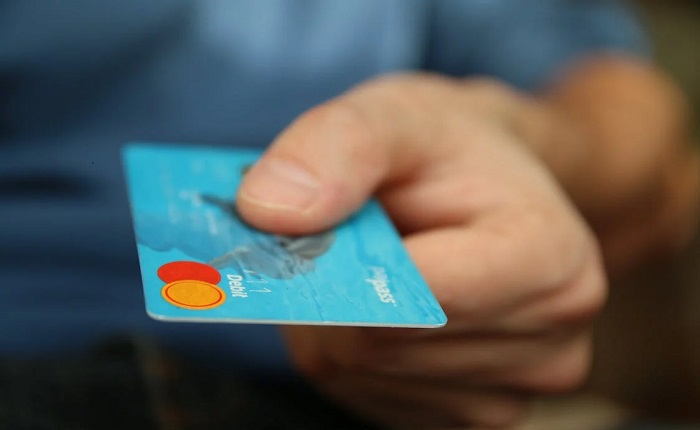12 ways to make money podcasting in 2023
Looking for ways to make money by podcasting is natural for any content creator in this area. After all, in addition to investing financial resources to purchase some of the AI tools for podcasting, and various equipment such as one of the best podcast microphones, it is also necessary to invest time to create quality content. So, nothing fairer than being rewarded for it, right?
The good news is that it’s not that difficult to start turning your podcast into a profitable business. In fact, there are several ways to earn extra income with your podcast. Some examples are:
- Sponsorship;
- Paid subscriptions;
- Affiliate programs;
- Mentorships.
However, there are several other ways to monetize your content. That’s why, in this article, we’re going to highlight the 12 best ways to make money by podcasting. Some tend to work best when you’re just starting out, and some tend to work best when you’re more established and have a larger audience. But don’t worry, we’re going to clarify each one of them.
Is it possible to make money by podcasting?
The answer is yes, but you will need to work hard to see the first results come in. Therefore, before thinking about making money with your podcast, focus on creating a lot of content that adds value to people. As such, don’t think you’ll start pulling in good income from your podcast overnight, as this process takes time.
In the middle of your journey, by gaining a qualified audience, you can implement several effective monetization methods. And, as we believe that any professional, whether big or small, deserves to earn a good income from their work, we are going to present you with the 12 ways to earn money with a podcast. With this content, you will be able to turn your passion into something profitable.
Before we start our list of 12 ways to make money podcasting, take a moment to check out our selection of the 10 best podcast cameras in 2023.
1. Sponsorship
Opening our list of ways to make money podcasting is sponsorship. In addition to being lucrative, it requires very little from you. Another important factor is that it leads you to have a partnership with the company, which can help you to have a guaranteed income for a few months.
While it’s possible for small creators to get noticed by big brands, this modality can be more effective for shows that already have a large audience. This is because the larger your audience, the greater the chance that a company will invest in your podcast.
There are several advertising agencies that specialize in podcasts, which help podcasters connect with advertisers. These agencies handle all negotiation and administration in exchange for a fee. In case they charge low fees, some agencies can be a good bridge to your company, so that you receive exactly what was agreed.
Another component that cannot be missing from your podcast is headphones. That’s why we’ve selected the 12 best headphones for streamers and live streaming in 2023. Ahh, and if you have any doubts about which one to choose, check out these 16 tips to choose a good gaming headset!
2. Paid subscriptions
If you have an educational podcast niche, you can choose to offer subscription plans to monetize your podcast. This monetization approach is very effective in making your viewers feel privileged to get exclusive access to special content. In this scenario, everyone wins: you can make money and your audience gets a quality product.
Additionally, for podcasters who value their independence and prefer not to rely on brand partnerships, establishing a subscription program is a smart way to preserve that autonomy. And if you already have a successful track record with profitable advertising, you can offer an ad-free option to your program members.
As for ideas for subscriber-only content, you can hold Q&A sessions. Another option is to offer tutorials and solutions to common problems your audience may have. Also, consider developing products that make your subscribers feel closer to you so that in future releases they are more likely to make purchases.
3. Affiliate program
The affiliate program also deserves a spot on our list of ways to make money podcasting. In this modality, you can share a product link with your audience and earn a commission for each sale made. One thing to be careful about in this modality is to see if the company provides a simple link that is easy to communicate and understand by your viewers.
For the best results if you decide to join an affiliate program, focus on promoting products or services that you use or know well so that you can speak authentically to your audience. Also, you can naturally mention a product or service when providing your regular content.
Among the platforms that have affiliate links are Amazon Associates Program, which offers a vast range of products, and Udemy, which has courses that can be attractive to your audience. Having a WordPress blog is also useful as it can provide more information about the products and services you mention in your content.
4. Courses
Investing in building a course can be very important for monetizing your podcast. This is because, in general, production costs are not very high and the return can be very good if you already have content that adds value to the lives of your listeners. Surely you’ve seen a creator with such good work that just by them announcing that they’re going to launch something, you’re already thinking about buying it. Be that creator too.
Having an email list is a huge help in informing your audience about the course, as it can help reinforce what has already been done in your podcast. Another option to promote your courses is to use a webinar platform, where you can show the value of what you offer and, in the end, make the course available. This strategy works well as people engage and interact directly with you live.
If you’re a big podcaster, you can count on this to your advantage, especially if you have no idea what kind of course you’re going to take. Use your experience to teach smaller creators how to grow with dedicated work in getting started with podcasting and strategies for getting ahead in this area. Now, if you are just starting out, but already have a good audience, use your expertise in a given subject to produce a course about it.
Also, check out our list of suggestions on how to set up a cheap setup for live streaming or podcasting.
5. Mentoring
Mentorships also deserve a spot on our list of ways to make money podcasting. They may be most useful for younger audiences or those who just don’t have much free time and, as such, don’t have time for a course. You can offer short mentorships with two weekly meetings for three months.
But of course, work your authority well in the area in which you will offer the service so that your audience feels interested in acquiring it. Invest in good shows that show that you master the subject and consciously disseminate mentoring. Always try to make it clear to your audience that, with you, they will have the option of receiving individualized guidance and clarifying doubts more quickly.
From career mentoring to health and wellness mentoring, you’ll be able to find your niche and make this yet another way to monetize your podcast. Sometimes, with just a few mentees, you already get a significant sum that you wouldn’t get in a course. This is because, as the content is much more personalized, you can charge more for offering it.
6. Donations
Asking your viewers for donations can be the easiest and most direct way to make money podcasting. People who always watch your content can feel free to help so that you feel more motivated. So don’t be shy about asking for donations to help keep your podcast up. But also be sure to offer different ways for this incentive to be carried out, whether PayPal or even cryptocurrencies. The important thing is to receive donations.
There are different ways to solicit financial support from listeners for your podcast. In addition to one-time payments, you can also use tools to request one-off donations. Another approach is crowdfunding, which differs slightly from donations but still involves fans contributing to support the podcast. Creators often launch crowdfunding campaigns to fund the launch of a new product or series.
What you should never leave aside when asking for donations is your transparency. Therefore, always inform your listeners why you are asking for this support and how it will be useful for the development of your podcast. For example, if you buy a new microphone with donations, you can make content for your social media showing the unboxing and communicate this to your listeners, so that they can see where you are investing the money received.
7. Premium content
Premium content can be customized to your preferences. Some tips for you to implement are exclusive interviews and early access to a new job. Research your audience and see what content they would be willing to pay for. Also, consider creating a community on Telegram or WhatsApp to get feedback on what people are thinking about your premium content.
To add even more value to this product, you can organize events to gather your best fans. If you don’t have the financial resources to invest in this at the moment, you can opt for virtual meetings on platforms like Zoom, or face-to-face meetings in a coffee shop or bar on a Friday. That way, you get even closer to your audience and may be able to sell other releases to them.
You can also offer physical products to premium content subscribers, such as t-shirts, hats, cups, or backpacks, to strengthen your community. Ask them to tag you on social media as well, as this can make people close to them aware of the products you offer in your podcast and could be influenced to buy too.
8. Sell your products
If there’s one thing fans love, it’s products related to their idol. No wonder celebrities sell the most varied merchandise and you can do that too on your journey of ways to make money podcasting. While you can start selling these branded products at any time, it’s preferable to wait until you have enough dedicated listeners to justify the costs.
When you’re ready to offer products to your audience, you have many options, such as t-shirts and hats. However, try to think outside the box and think of disruptive and different products that your audience can’t find anywhere else. With this, you will have much more chances to sell and make a profit. But don’t just think about putting money in your pocket and charging an exorbitant price. Be fair so that your sales go better.
Another thing that can also help your sales is making your audience feel like they’re a part of your launch process. So ask them what types of items they would like you to sell. Use your social media for that too. Also, do raffles of what you will sell so that your audience gets more involved with you.
9. Publish an e-book
Undoubtedly, a book is one of the best ways to show that you are an authority on a certain subject. However, it can also be one of the ways to make money from podcasting. In that sense, you can create an e-book about your niche or simply turn your show into a book. The advantage of the second option is that if you regularly produce podcasts, you may already have enough material to write a book, even if you need to make some modifications. The process will be faster.
Another advantage of publishing a book is that you get visibility on blogs and in the literary market. This can help you reach a larger audience for your podcast. Books also tend to have timeless content, which can appeal to both new and old listeners. Also, consider adding freebie products for those who purchase your book to increase your chances of selling.
If you produce more technical content, an e-book can also help your audience delve deeper into the topics discussed in your podcast. So, enrich your audience’s experience by publishing an e-book.
10. Post your podcast on YouTube
By adding your podcast to YouTube, you can join the Affiliate Program of the largest video-sharing site in the world. In it, you will generate revenue and still receive support. Upload your podcasts regularly so you can reach a large audience. After all, to start monetizing, you need to have at least 1,000 subscribers and 4,000 hours watched within a year.
One tip to achieve this is to edit your podcasts. In addition to posting them in full, crop them so people can see the most interesting parts. YouTube shorts are the format that attracts the most visibility, so use and abuse them. You can also create a special edition with a background image next to the audio file if your podcast is not in video format.
Other ways that YouTube offers its creators to monetize are ads on the watch page, ads in the shorts, and subscriptions. You can also use the platform’s store to advertise your podcast products. The “Supers” feature, with “Super Chat”, “Super Stickers” and “Thanks a lot”, allows you to develop engagement with fans who support you and earn money.
11. Join a podcast advertising network
There are some drawbacks when using this method to monetize your podcast. One is that you won’t be able to keep your podcast content free of ads, as you’ll need to include them. However, if you want to make these ads as inconspicuous as possible, you can also include them as end ads for your content.
Podcast advertising networks are available to connect podcasts and brands with a common audience. They can be a great way to monetize your streams. However, they may require you to have a minimum number of regular listeners to participate, such as 1,000. Some podcast advertising networks are PodcastOne, AdvertiseCast, SXM Media, and Megaphone.
These networks usually have partnerships with several advertisers. This can open you up to greater advertising opportunities than if you were trying to find advertisers on your own. And of course, you also no longer have the headache of doing all the campaign management, as the agencies do it for you.
12. Social media
Social media rounds off our list of ways to make money podcasting. Bet on the most popular platforms for this, especially if your audience is made up of the Z generation or millennials. Invest in cuts from your show in Reels for Instagram or videos for TikTok.
In the case of Instagram, to be entitled to monetization, it is necessary to have a business or content creator account. You need to be over 18 and have more than 10,000 followers. Also, you need to go to your “Pro Dashboard”, scroll down to “Tools”, and tap “Monetization”. Next to “Ads” on Reels, click “Configure” to adjust your payment account.
On TikTok, you also need to be over 18 and have at least 10,000 followers. For this social media, when making the cuts, always remember to leave the content longer than one minute, as videos below that time are not monetized by TikTok. Even if you still don’t have 10,000 followers on these social media, it’s good that you start posting content to attract an audience and that they get used to your video format.
How do you make money podcasting?
You can make money from a podcast through sponsorships and advertising, where companies pay to promote their products. In addition, many podcasters utilize affiliate programs to earn commissions, solicit donations from listeners, offer premium content on a subscription basis, and sell program-related merchandise.
What do you need to make money by podcasting?
The monetization of a podcast varies according to the number of listeners, market niche, monetization model, content quality and frequency, and marketing strategies. While some small podcasts may only earn a few hundreds of dollars a month, the biggest and most popular ones can reach tens or hundreds of thousands of dollars monthly.
How much does a podcast channel earn?
Relying on the platform’s income and other forms of monetization, small podcasts can earn up to $500 per episode, while medium podcasts, with tens of thousands of viewers, can earn up to $5,000 per episode. The big and popular ones, with millions of weekly views, can earn millions of dollars annually.
Why invest in a podcast?
Investing in a podcast is strategic due to the continuous growth of this medium’s audience. Podcasts allow for a deep, personal connection with an audience. They offer the ability to cater to specific niches, and numerous monetization opportunities, and can establish the presenter as an authority in their field.









